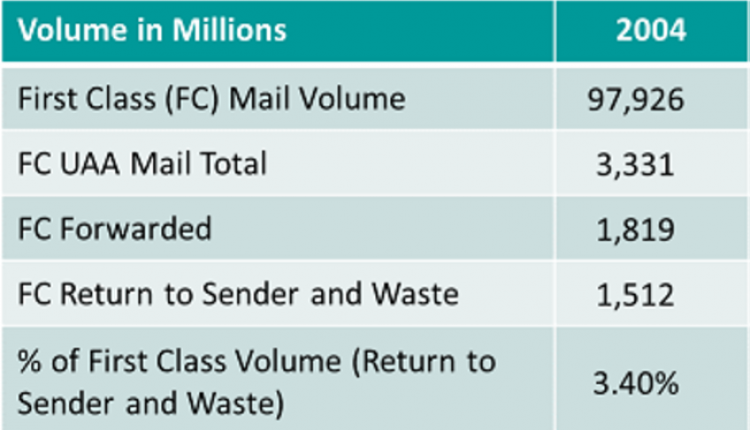As I write this column, the Postal Service is getting ready to file its first-ever exigent rate increase request with the Postal Regulatory Commission. Mailers were bracing for a filing in early July that could seek price increases of five percent to possibly 12% on certain products -- such as magazines and catalogs -- that did not earn enough revenue last year to cover their costs.
The postal law restricts price hikes on market-dominant products, at the mail class level, to the increase in the rate of inflation. With no inflation last year, the USPS did not increase prices at the start of 2010. The Postal Service has argued that an exigent price increase is necessary because the recession and subsequent decline in volume and revenue is an extraordinary or exceptional event. Mailers do not agree with that argument, and they are expected to challenge it in proceedings before the PRC, and potentially in federal court if necessary.
The mood among mailers right now is one of anger and anxiety. Trade groups are out stumping for funds to fight the Postal Service's price increase on the argument that an economic downturn is not an extraordinary or exceptional event. This was not Congress' intention when it included the exigency provision in the Postal Accountability and Enhancement Act (PAEA). It's likely we'll see a number of trade associations band together to fight this rate hike. Nothing unites the mailing industry like opposition to a price increase. But in this case, the stakes are higher than ever.
For one thing, there is the precedence involved. The PAEA is a new law - it took effect in December 2006 - so the USPS has never exercised the exigency provision. Most mailers expected this card would be played only if there were another large-scale terrorist attack. Mailers worry that if the PRC agrees with the Postal Service's argument that a slow economic period warrants an exigent rate increase, this will make it easy for the USPS to seek exigent increases in the future.
This explains mailers' anxiety. This price increase could not come at a worse time, they say. Many companies are just seeing daylight after many months of a dark recession. Sales are starting to pick up and advertising is increasing, but a consumer price drop is squeezing profits. A recent Wall Street Journal article said US consumer prices actually fell in May by 0.2% even though commodity prices remain higher than last year. This means that many companies are not passing on the increase in wholesale prices to consumers.
A number of mailers have told me that their companies have not raised prices in two years. They are not passing on any cost increases to their own customers. They are cutting costs, improving efficiencies and doing more with less. They think the Postal Service should do the same. Postal customers cannot absorb a postage price increase of 5% -- on the low end - let alone a price increase of 10%. If they pass that increase on to their own customers, they slow down an economic recovery.
But what about the Postal Service's steady loss of revenue and the potential to end the year with a $7 billion net loss? The USPS has cut costs significantly, and if Congress won't restructure the pre-funding payments for retiree health benefits, what choice does the USPS have?
Mailers aren't buying the argument that a price increase is the only solution. Some think the Board of Governors should ask Congress to raise the USPS' borrowing authority. The Postal Service could continue to borrow while the USPS and industry groups work to convince Congress to change the pre-funding payments into the Retiree Health Benefits Fund. Further, the USPS will begin labor negotiations with two of its unions this summer and could seek compromises there. Many mailers believe the USPS should have pressured the unions to reopen the contracts during the heart of the recession to allow furloughs or a change in work rules. Nothing irritates mailers like reading about workers sitting in "holding rooms" and getting paid to do nothing.
Mailers of flat-sized products say the USPS has not captured cost savings in flat mail, forcing mailers to pay for inefficiencies. Finally, some industry groups believe the USPS could do more in the area of new products or innovative pricing. A price increase, at the very moment the economy is starting to recover, is a deadly blow. Not just to the mailing industry but to the larger economy.
Look for a rough and tumble fight before the PRC when the Postal Service files its case this summer.
The postal law restricts price hikes on market-dominant products, at the mail class level, to the increase in the rate of inflation. With no inflation last year, the USPS did not increase prices at the start of 2010. The Postal Service has argued that an exigent price increase is necessary because the recession and subsequent decline in volume and revenue is an extraordinary or exceptional event. Mailers do not agree with that argument, and they are expected to challenge it in proceedings before the PRC, and potentially in federal court if necessary.
The mood among mailers right now is one of anger and anxiety. Trade groups are out stumping for funds to fight the Postal Service's price increase on the argument that an economic downturn is not an extraordinary or exceptional event. This was not Congress' intention when it included the exigency provision in the Postal Accountability and Enhancement Act (PAEA). It's likely we'll see a number of trade associations band together to fight this rate hike. Nothing unites the mailing industry like opposition to a price increase. But in this case, the stakes are higher than ever.
For one thing, there is the precedence involved. The PAEA is a new law - it took effect in December 2006 - so the USPS has never exercised the exigency provision. Most mailers expected this card would be played only if there were another large-scale terrorist attack. Mailers worry that if the PRC agrees with the Postal Service's argument that a slow economic period warrants an exigent rate increase, this will make it easy for the USPS to seek exigent increases in the future.
This explains mailers' anxiety. This price increase could not come at a worse time, they say. Many companies are just seeing daylight after many months of a dark recession. Sales are starting to pick up and advertising is increasing, but a consumer price drop is squeezing profits. A recent Wall Street Journal article said US consumer prices actually fell in May by 0.2% even though commodity prices remain higher than last year. This means that many companies are not passing on the increase in wholesale prices to consumers.
A number of mailers have told me that their companies have not raised prices in two years. They are not passing on any cost increases to their own customers. They are cutting costs, improving efficiencies and doing more with less. They think the Postal Service should do the same. Postal customers cannot absorb a postage price increase of 5% -- on the low end - let alone a price increase of 10%. If they pass that increase on to their own customers, they slow down an economic recovery.
But what about the Postal Service's steady loss of revenue and the potential to end the year with a $7 billion net loss? The USPS has cut costs significantly, and if Congress won't restructure the pre-funding payments for retiree health benefits, what choice does the USPS have?
Mailers aren't buying the argument that a price increase is the only solution. Some think the Board of Governors should ask Congress to raise the USPS' borrowing authority. The Postal Service could continue to borrow while the USPS and industry groups work to convince Congress to change the pre-funding payments into the Retiree Health Benefits Fund. Further, the USPS will begin labor negotiations with two of its unions this summer and could seek compromises there. Many mailers believe the USPS should have pressured the unions to reopen the contracts during the heart of the recession to allow furloughs or a change in work rules. Nothing irritates mailers like reading about workers sitting in "holding rooms" and getting paid to do nothing.
Mailers of flat-sized products say the USPS has not captured cost savings in flat mail, forcing mailers to pay for inefficiencies. Finally, some industry groups believe the USPS could do more in the area of new products or innovative pricing. A price increase, at the very moment the economy is starting to recover, is a deadly blow. Not just to the mailing industry but to the larger economy.
Look for a rough and tumble fight before the PRC when the Postal Service files its case this summer.
Kate Muth is president of Muth Communications, a writing, editing and consulting firm. Contact her at katemuth@comcast.net.





